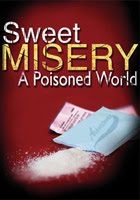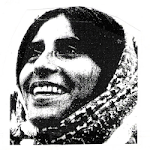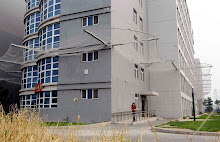Mondo Weiss
Philip Weiss
The American political tragedy. Kyrsten Sinema is an Arizona state senator with a leftwing back story. She was involved in global justice issues and the Green Party. But now she's running for the Democratic nomination for Congress in Arizona and is up against an establishment candidate, Andrei Cherny, a liberal hawk who is the grandson of Holocaust survivors.
Israel is playing a big part in the race. Sinema has now gone to AIPAC.
Here is Sinema's history, per Marc Tracy at Tablet:
Philip Weiss
The American political tragedy. Kyrsten Sinema is an Arizona state senator with a leftwing back story. She was involved in global justice issues and the Green Party. But now she's running for the Democratic nomination for Congress in Arizona and is up against an establishment candidate, Andrei Cherny, a liberal hawk who is the grandson of Holocaust survivors.
Israel is playing a big part in the race. Sinema has now gone to AIPAC.
In this race, Cherny has unabashedly—his opponents say unfairly—drawn stark distinctions with his key rival, State Sen. Kyrsten Sinema, on the question of Israel and national security in order to position himself to her right.
Here is Sinema's history, per Marc Tracy at Tablet:
Soon after 9/11, at 25 years old, she co-founded Local to Global Justice, a local advocacy group. Its initial mission was to oppose the invasion of Afghanistan, but in 2007 it signed a petition calling for an end to U.S. aid to Israel and another in 2008 decrying Israeli “human rights violations against Palestinians in the Occupied Territories and against civilians in Lebanon.” Sinema joined Women in Black, a group founded by Israelis during the First Intifada to protest human rights abuses in the territories—a history of which Sinema claimed to be unaware. (That’s pretty hard to believe, since the group was founded in 1988 and is easily located on Google.) Also in 9/11’s aftermath, she helped organize the Arizona Alliance for Peaceful Justice; its motto was, “military action is an inappropriate response to terrorism.” According to The Hill, this was her position, too. At least as late as 2010, she continued to associate with these groups, speaking, for example, at an antiwar rally several sponsored. She has since severed ties.I believe this is all about money and the establishment, where the campaign financing is on the Democratic side, and where the party endorsements are. Here is Sinema's position paper on Israel and Palestine. In a word, craven:
...A Sinema spokesman pointed me to an official position paper laying out standard pro-Israel views and insisted that much of Sinema’s awkward past derives from a simple fact: “She was 24 years old, very frustrated with the Democratic Party, [and] thought that the Green Party was more progressive on environmental issues and sustainability.” To which Cherny’s response might be: When I was 24, I was already on-message and certainly wasn’t a Green Party supporter.
Sinema’s spokesman dismissed Cherny’s attacks as spin—the result “of a campaign deciding to try to make Sinema look bad because she had the courage to be outspoken against the Afghanistan and Iraq Wars.” He also pointed to Sinema’s position paper on Israel and Iran, which calls for a two-state solution and vigorous sanctions against the Islamic Republic, and mentions a trip she took to Israel in 2009, when she visited Sderot and was moved by the inhabitants living under the threat of rockets. The conservative Washington Free Beacon reported (in one of the instances in which this race has received attention beyond Maricopa County) that she attended this year’s AIPAC Policy Conference.
The United States and Israel have been allies for more than 60 years, and this relationship, born of common values, must continue to be strong. Our friendship is rooted in our mutual respect for democratic values, human rights and religious freedom. I am a strong supporter of our relationship with Israel, and I believe that the U.S. should continue to support and strengthen Israel and her democratically elected leaders, with an eye toward maintaining her security in an unstable part of the world.
The Israeli / Palestinian Peace Process
In 2009, I had the opportunity to visit Israel as a member of a bipartisan delegation of American political leaders. During that week-long trip, I had the privilege of meeting with members of the Knesset, Israeli political party leaders, business leaders, and leaders of various non-governmental associations. This visit occurred shortly after the 2009 elections and the country was in the midst of change. Traveling throughout the country during this time, visiting Jerusalem, Sderot, Golan Heights, Tel Aviv, and other locations, was a remarkable and eye-opening experience. While I had read about the conflict between Israel and Hamas, it was only in Sderot that I saw first hand the danger in which many Israelis live each day. I will never forget the bomb shelter that was built at the site of a children's playground after children had been killed by Hamas rockets. The families in Sderot live each day in danger. While I had long been a supporter of Israel, it is perhaps this image that stays with me more than any other. No family should live in fear of terrorists.
A safe and secure Israel must be protected; my policy positions below lay out how I believe we best achieve that security. I believe that Israel has the right to defend herself from her neighbors and from terrorist organizations. I also believe that the best path to long-term peace for Israel is a two-state solution – one a secure Jewish state of Israel and the other, an independent, demilitarized Palestine.
To achieve this outcome, the U.S. must play a role in the peace process, but lasting peace will only emerge from direct negotiations between the Israelis and Palestinians themselves.
I support and I believe that the U.S. must support direct bilateral negotiations. Successful negotiations can be achieved only with legitimate and pragmatic Palestinian leaders. I am deeply concerned about the new unity government with Hamas, and I oppose any aid or support to Hamas. I believe that Hamas ought to recognize Israel's right to exist and renounce violence before it can be a pragmatic negotiating partner for Israel.
Military Assistance
I believe that the U.S. must continue to support Israel with military and economic assistance, which is paramount to her survival. The U.S. benefits as well by supporting a strong ally with expertise in the region. Providing for the security of Israel is providing for U.S. security. As a member of Congress, I will vote for continued foreign aid to Israel and ensure that the 10-year, $30 billion agreement in principle for U.S. military and security assistance for Israel is upheld. In fact, that number may need to be increased as threats increase in the dangerous neighborhood in which Israel lives. While we all hope that the changes in governance in countries directly adjacent to Israel provide for positive and dramatic democratic and civil rights advances, we must closely monitor the situation with the hope that regimes in league with terrorist organizations do not fill the void. Already, we have seen that what was once a relatively tight and secure southern border of Israel, made possible with Egypt's military assistance, has now become porous and allows the transport of terrorists and weaponry into Gaza. Israel uses its resources effectively, but this new southern front increases the threats to Israel’s security....
Iran
A nuclear Iran is one of the most significant threats to Israel, the Middle East, and the world. I believe that U.S. policy should be aimed at stopping Iran from gaining nuclear weapons and that we should publicly and privately call on Iran to live up to its obligations under the nonproliferation treaty. I support the Obama administration’s policies of leaving all options on the table and pushing a strong case for increased sanctions against the Iranian regime. We must not allow Iran to obtain nuclear weapons capability.































No comments:
Post a Comment